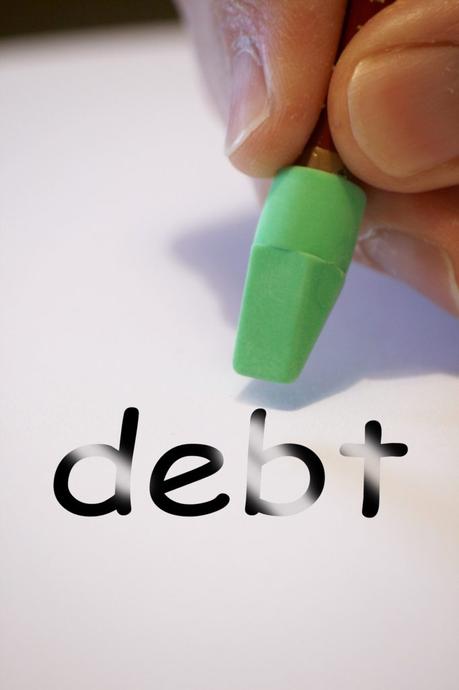
In more debt than you can comprehend? For the average American household that carries over $15,000 in credit card debt, tuning out the overflowing thoughts and stress might feel like the only way to get through each day. However, this does nothing aside from guarantee a life spent in debt. And if your fate is like 73 percent of American consumers, you'll die with that debt, too.
No matter the financial mistakes you've made, you can turn your situation around. Use these six tips to pay your debt down faster.
Understand Your Debt
It might go without saying that a debtor needs to know their financial situation to successfully pay down debt, which may explain why so many consumers never get out of debt. According to a report published in The Atlantic, American households underestimated their credit card debt by 40 percent. Factoring the debt-induced mental stress from carrying various balances with high monthly interest rates, and the underestimation makes more sense.
Step one in any get-out-of-debt plan is to get your entire financial life on one sheet of paper. Jot down every debt balance and interest rate you carry, the minimum payments on each card, your liquid and non-liquid assets, your income, expected tax bill or refund, and other pertinent information. With a comprehensive snapshot of how much you owe, how much you have, and the rate at which your debt will continue to accumulate will inform how your structure your payment plan.
Stop Using Your Credit Card
Another seemingly obvious tip when deciding how to pay down debt faster is to stop using your credit card. However, for many consumers, merely being in debt isn't enough grounds for them to stop using their credit cards altogether. A big reason for this is habit. Accumulating excessive credit card debt stems from bad financial habits; overspending, impulsive purchases, underestimating existing debt, etc. After you've recorded your various balances, get out your sharpest pair of sheers and cut, cut, cut!
Increase Your Earning Power
Most debt repayment tips revolve around saving money. But a solution can just as easily be obtained by increasing your income. Whether that's through selling unneeded items, picking up a side hustle, learning a new skill that improves your long-term career outlook, or earning a promotion at your current job - evaluate how you can earn more money each month. When you've improved your monthly earnings, put it directly toward your debt to shorten your repayment period.
Decide on a Repayment Plan
Because of the varying interest rates and credit card terms offered, it's easy to inefficiently pay back debt. For example, just because your card issuer allows you to make minimum payments on each card, doesn't mean you should. Or if you carry balances on two cards, but one has a much higher interest rate, you shouldn't split your payments equally between them, like one study found UK consumers doing. This could extend your time in debt by years, if not decades.
Instead, pick a debt repayment plan. The most common three approaches include the avalanche, snowball and snowflake method.
Debt Avalanche - The most aggressive repayment strategy, debt avalanche plans focus on paying the minimum balances on cards with lower interest rates, allocating a debtor's remaining repayment money to the balance with the highest monthly interest rate.
Debt Snowball - The snowball approach entails paying minimum payments on all balances except the one with the lowest interest rate. The snowball method won't save debtors the most money, but it does simplify a financial situation by eliminating balances quicker.
Debt Snowflake - The snowflake strategy, unlike the two above plans, focus on taking any additional funds after your monthly income, and using it to pay back debt through either the snowball or avalanche approach.
Pay Attention to Financial Thought LeadersThe days of having to pay or know someone to get financial advice are long gone. From Twitter feeds, personal finance blogs and money management forums, a wealth of resources exist online, all for your perusal. On Reddit, /r/personalfinance offers endless content and discussion on any corridor of finance one can imagine. The best part is that instead of getting one author's perspective, like on a blog, you're getting firsthand accounts from real people.
But blogs can be invaluable with a knowledgeable financial mind and writing talent. There are thousands of these sites though, so check out some roundup lists to get a feel for what resonates. Lastly, social feeds and guest posts always yield value, whether it's from well-known financial thought leaders like Suze Orman or C-suite executives of large financial companies like Andrew Housser at Freedom Financial Network or Jesse Mecham from You Need a Budget (YNAB)
Cherish Your Progress
Nothing remarkable happens overnight, including paying back your debt. Exercise patience in your repayment plan. If you have large debt, it'll take years of steady payments before you reach the promised land. If you're not celebrating the small wins, you'll grow to hate the experience and risk falling off your pace. Set incremental goals to not only ensure you stay on track, but give you a reason to rejoice each time you meet a milestone. Aside from repaying your debt, expressing gratitude and positivity go a long way in combating the negative emotions that affect debtors.
Following through on a long-term plan like paying back debt isn't easy. It requires you to suppress your mental stress, sacrifice your lifestyle, and make continual progress for months or years. But like navigating any arduous commitment, you'll learn a lot about yourself in the process, and as you near your goal, you'll be filled with a rush of satisfaction, happiness and calm knowing that your debt no longer owns you.
Image: Pixabay
Comments
comments

